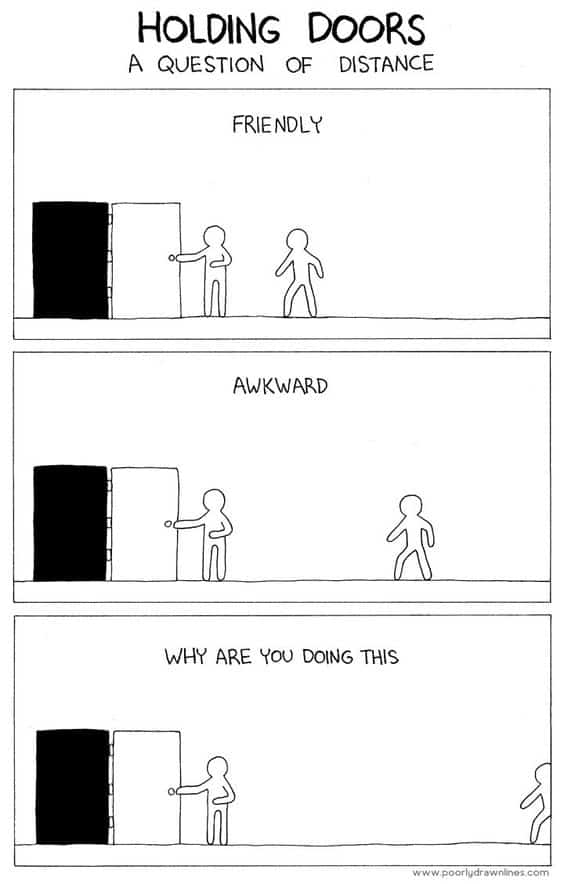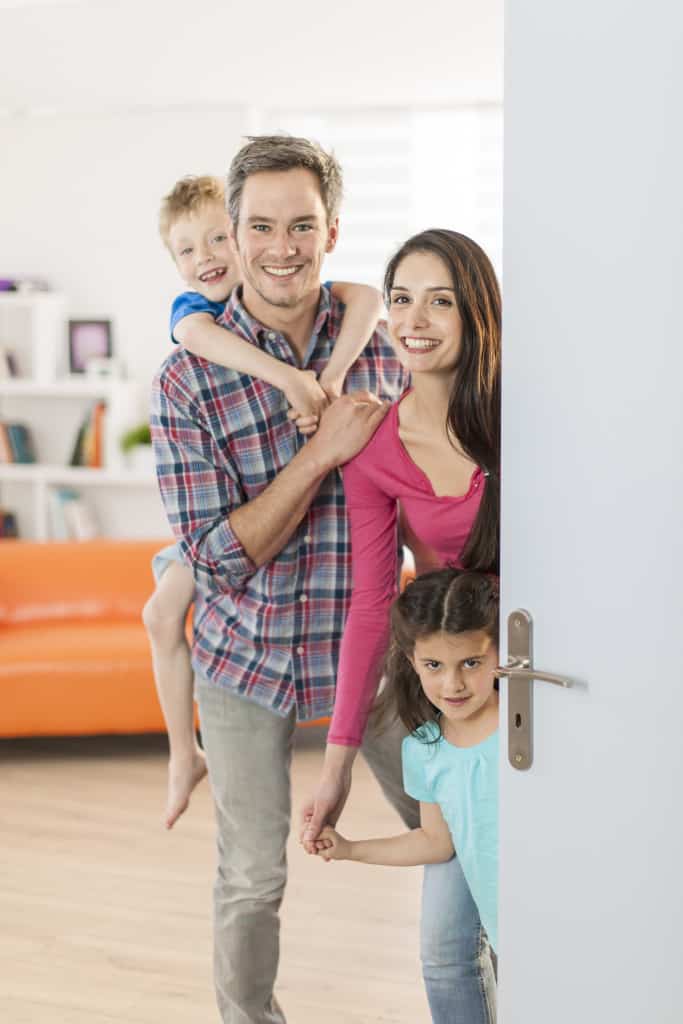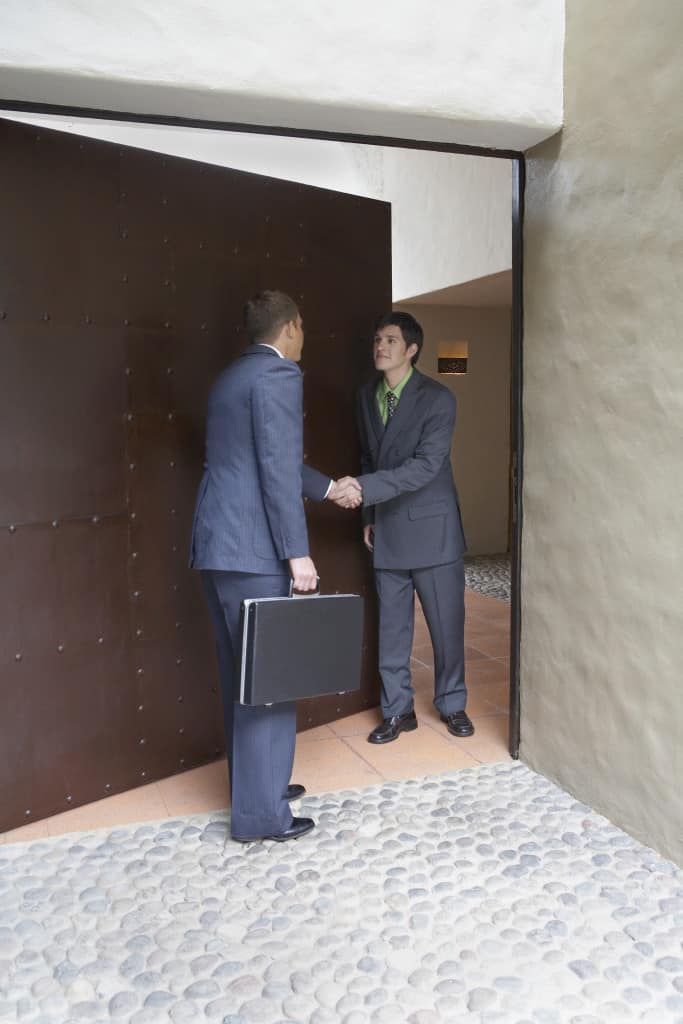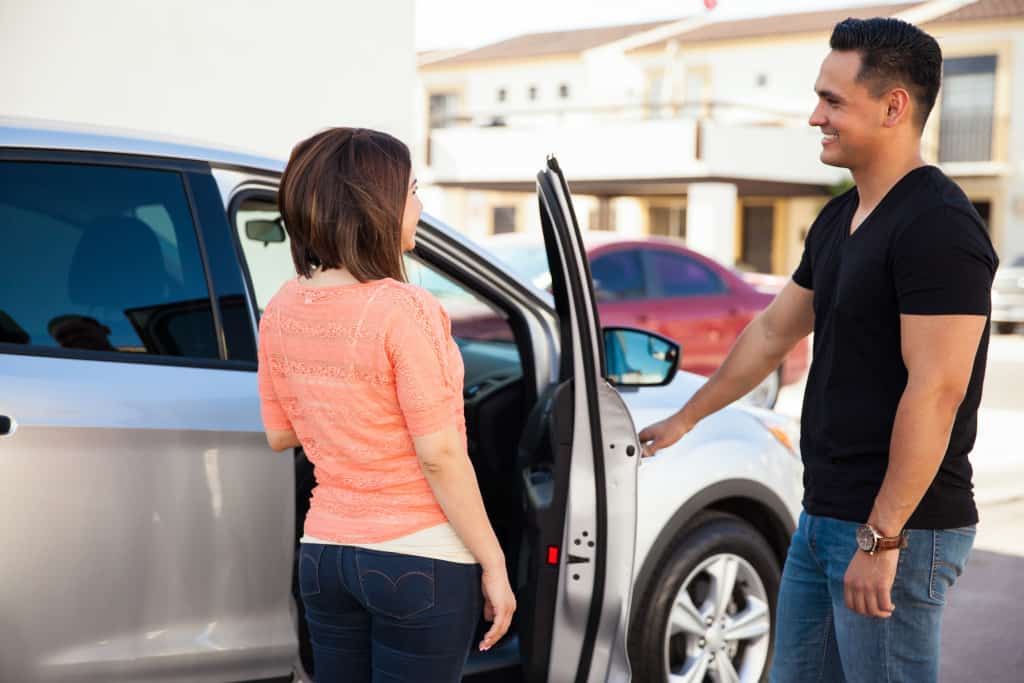
By: Maralee McKee
There’s more to opening and holding the door for others than turning the knob or holding it for the next person. That’s why when you know the five manners of opening every door, you unlock a lot.
“A lot of what” you ask?
The answer: goodwill, graciousness, and great possibilities!
There’s just something nice about someone holding a door open for you, don’t you think?
And have you ever held the door open for people who didn’t say thank you? It’s the worst!
That’s because they weren’t holding up their end of the unwritten social code we all know (and appreciate): hold the door open for the next person(s), and say thank you when someone does it for you.
The Lesson That Holding the Door Open Taught My Son About People
Several years ago, when Corbett, my youngest son, and I were going in to Barnes & Noble, Corbett ran ahead a few feet to open the door for several ladies who were talking to each other as they entered the store. Each one walked through and never smiled, made eye contact, or said anything to him.
“Mama, those ladies didn’t say thank you or even notice me. I’m not going to hold the door open for anyone else — ever,” he said, half in disappointment, half in indignation.
“Babe,” I tried to encourage him, “you can’t help what other people do, but you’re in complete control over what you do. I don’t know why they didn’t say thank you, and I can tell you’re a little hurt by it. They’re proof that we set a good or bad example with everything we do. Why don’t you keep setting good examples, and if enough people do the same thing, eventually, maybe, those ladies will catch on. Besides, other people in the past have said thank you, and smiled, and even said nice things to you! Think of how you would have deprived them and you of that good feeling if you hadn’t held the door open.”
“I guess,” he said, still deflated, but trying to rebound.

His faith in social goodwill was bolstered on his way out of the store about an hour later. He held the door open for a man in his late twenties who looked at him, smiled, and said, “You’re a fine guy. Thank you!”
“You’re welcome!” Corbett beamed as he took my hand to walk across the parking lot.
“That guy was cool! Yeah Mom, I guess some people are really nice,” he proclaimed, still beaming. It was a lesson learned that he still benefits from today!
Opening a door — it’s such a simple thing, but it unlocks so much good. And I bet you’ll be surprised at some of what you’re about to discover. Let’s look at the five manners of opening every door so we never misplace our key to this basic but significant social contract.
Opening and Holding the Door for Others – The Top 5 Manners
1. Opening the Door at Home
~ As you greet people at your door, allow each one plenty of space to enter. Having them squeeze into your home doesn’t send a warm welcome.
~ Even though it’s obvious you want them to come in, gift them with a verbal invitation: “Hello, Everly! Please come in!”
~ As a guest, don’t cross someone’s threshold until they verbally invite you. If they don’t know to do this and you stand there for more than a second, say, “May I come in?” They’ll catch on and say something like, “Sure! Come in! Come in!”
~ If someone drops by unannounced and it’s not a good time to visit, it’s fine to say so. If there’s a reason that now isn’t a good time, and you can share it, it’s nice to do so. If the reason you don’t want to invite someone in is because you simply don’t want to see the person — well, leave that part out!
~ For someone you want to see, say something like, “Bev, what a surprise! It’s nice to see you. I wish I could invite you in. I’m in the middle of a project that I promised myself I would finish today. I want to spend time with you. Do you have anytime on Thursday evening or next Monday morning?”
~ For someone you would rather not meet with at your home (or at all), be vague about a next meeting and suggest meeting, if at all, somewhere other than your house. “Chris, your visit is a surprise. I’m in the middle of a project I have to complete today. I can try and meet you sometime for coffee at Starbucks. If you’ll call me in the next couple of weeks, we can set something up.” Now, you might end up getting a call from Chris. Or Chris might (like so many people) never get around to calling.
When Someone Leaves Your Home:
~ People appreciate knowing that you want the relationship to continue and that you’re looking forward to the next time you’re together. Try to make plans now. If you can’t set plans in stone at this point, at least draw them out in sand.
~ Weather permitting, walk guests out to to their car. It’s going the second mile for them. At the car, your goodbye should be short since you already said goodbye inside: “Drive safely, Cole. It was a joy seeing you! Don’t forget to give my love to your family.” Step back from the car and wave as they drive away. Go back in the house once they’ve pulled safely out of your driveway and onto the street.
2. Opening the Door at Work
~ Chivalry isn’t dead! It’s just that, in the workplace, it’s gender neutral. The first person at the door opens and holds it for the next person. Open the door by pulling it towards you and standing behind it to allow maximum room for people to pass.
~ In some corporate cultures, associates will walk ahead to open the door for a superior. In other corporate cultures (especially in church and ministry settings), social manners are used, and men will walk ahead to open the door for women. Know your corporate culture and follow it.
~ For those who have their hands full, always offer to open the door for them, no matter who it is.
~ Your clients and office visitors are guests. Open interior doors for them.
~ If you’re in your office and one or more clients (or salespersons) are in the lobby, go out to personally greet them and walk with them to your office. Don’t send an assistant or staff member to escort someone to your office. Doing it yourself shows you’re the best leader — a servant leader, who doesn’t need an ego boost by appearing too busy or important to personally greet someone who has come to see you.
When Someone Leaves Your Place of Work:
~ Follow all the steps mentioned above for When Someone Leaves Your Home. While you won’t often walk office guests all the way to their car, you certainly could if you want. At the least, you’ll want to walk them to the door or elevator. Again, just like when saying goodbye at home, make sure your goodbye at the car or door is brief, since you will have said your “official” goodbye in the office. “Goodbye, Layla, and thank you again for your time today! I’ll see you on the fifth at our follow-up meeting!”
3. Opening Doors in Public
~ When out and about, there are lots of times you’ll want to say to those ahead of you, “I’ll be glad to get the door!” These would include times when they: have their hands full, are pushing a baby stroller, have two or more small children with them, are wearing a cast or brace indicating they have a broken arm, wrist, shoulder or such, are on crutches, or look weak or unsteady on their feet.
~ For people in wheelchairs, ask, “May I get the door?” and wait for their response before proceeding. I think it’s fine to automatically offer assistance to people in wheelchairs, but they don’t all agree, and since I’m not in one, I won’t weigh in definitively. So ask first — it’s kinder than assuming.
~ Ladies, it’s not condescending when a gentleman opens the door for you. His mama taught him well, and he’s doing what he was taught. The man opening the door doesn’t think you’re too dumb to figure out how to turn the knob, nor does he think you’re too physically weak to push it open. It’s a simple gesture of courtesy. It’s rude to bemoan someone’s innocent act of kindness. The correct reply is, “Thank you!” And yes, of course, you may offer to open the door for a gentleman. He, too, should not be anything but grateful for your small act of thoughtfulness.
~ When you get caught holding the door open because a large group of people start to enter and somehow you turn into the doorman, make eye contact with someone and say, “Here you go!” Do this as you let the door slip slowly from your fingers so it doesn’t whack a person.
4. Opening Car Doors
~ Socially, men open car doors for women by pulling the door out and standing behind it. Keep your eyes averted for a moment if she’s wearing a skirt or dress so she has a moment to get everything adjusted. If she’s carrying anything, including a purse, it’s nice to offer to hold it until she’s settled in.
~ When entering a taxi, gentlemen traditionally open the door for the lady. Then she steps back and allows him to get in first. That way, he’s the one who slides over to the other side of the car. It’s a nice gesture when a lady is wearing a skirt or dress, because it’s hard to gracefully slide over (Spanx alert!) while wearing either of those two items. The lady then closes the taxi cab door.
~ When you’re driving someone in your car, you’re the host. In the same way that you’re the one to open the door to your home, you should be the one to open the car door for your “guest.” Women are often not comfortable opening the car door for men, and men often aren’t comfortable opening the car door for other men. If that’s you, then don’t feel that it’s a must. If you’re up for it, then as you’re already opening the door, say, “You’re my guest; allow me to open the door for you.” In this way you explain your kindness. The person you open the door for should simply say, “Thank you!”
~ When you arrive at your destination, you don’t need to open the door for the other person except for men opening car doors for women on social occasions.
~ In some corporate cultures, junior associates will open and close car doors for senior staff regardless of gender. Like always, know your corporate culture and follow it.

This cartoon drawing is accurate. It shows the approximate distances people should be when deciding whether you should hold the door open for them.
5. When Someone Opens a Door for You
~ Make eye contact with the person, smile, and say thank you in a sentence. Thank you’s are nice, but they can come off as rote when not said in a sentence. Try something like, “Thank you for holding the door. That was very kind of you!” You’ve just given the person the gift of a heart-felt thank you, and your words are the type of encouragement that spurs people on to more kind deeds.
It opens wide the door to the social niceties that make our world a little nicer at that moment. When someone has shown you genuine kindness, you just can’t help but think that anything good is possible. And you know what? It is when we follow the Gold Standard for living out the Golden Rule.
What Next?
Why not tell your friends and family about The Etiquette School of America, and share this post with people in your social media circles to let them know about our blog. Nothing will spread the word better!
Thank you so much for reading and being part of the family. Until next time, keep sharing with the world the gift you were created to give … you at your best!
All my best,




